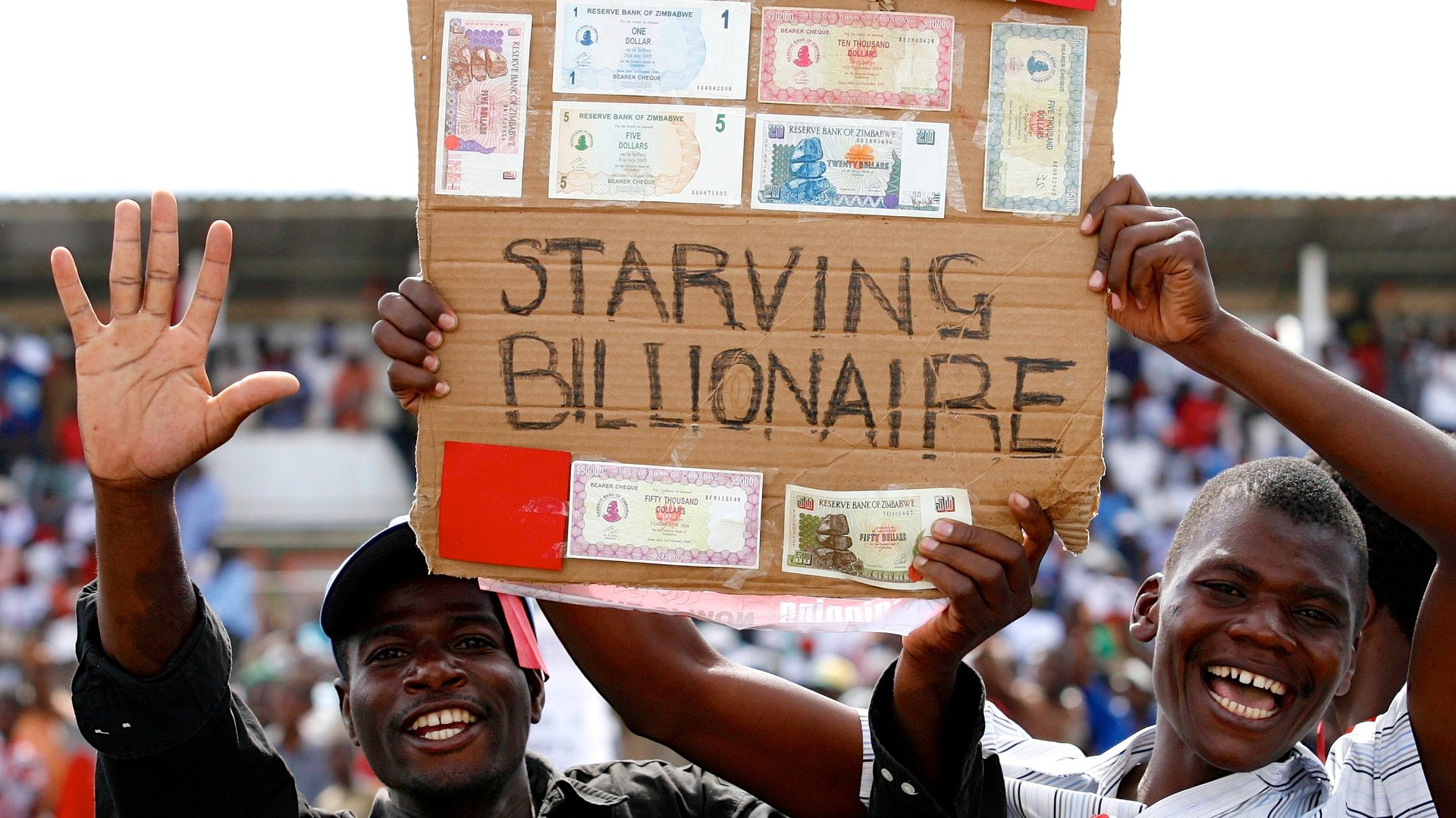Zimbabweans fear a return of the dark days when everyone was a billionaire
The introduction of “bond notes” has sparked anxiety among Zimbabweans who fear that it may be a ploy to revive the country’s defunct currency, the Zimbabwean dollar. Last week, the country’s central bank chief announced that the country will print its own version of the US dollar to deal with a cash flow crisis.


The introduction of “bond notes” has sparked anxiety among Zimbabweans who fear that it may be a ploy to revive the country’s defunct currency, the Zimbabwean dollar. Last week, the country’s central bank chief announced that the country will print its own version of the US dollar to deal with a cash flow crisis.
Since 2009, Zimbabwe has adopted the US dollar, the South African rand, and the Chinese yuan as legal tender. Epic economic mismanagement led to hyperinflation during the dying days of the Zimbabwean dollar, with inflation reaching 500 billion percent in 2008. In those days, Zimbabweans would carry bags of cash around with them, using billion-dollar notes to pay for groceries. The return of a locally controlled currency brings back these uncomfortable memories, raising fears that the country is headed that way again.
Headlines like “Bond notes: The worst is upon us,” are splashed across the front pages of newspapers, while activists are calling for protests against the currency plan. Some have suggested that the country should embrace bitcoin instead.
Zimbabweans have also taken to social media to voice their fears, with a dose of sarcastic humor.
Tendai Biti, Zimbabwe’s former finance minister and now a member of the opposition, described the bond notes as a sign that the ruling Zanu-PF party is losing control of the economy.
“Perhaps the burning question of the day, is why has the regime embarked on such a bizarre reckless act,” Biti wrote in a Facebook post. “The answer is that the regime has run out of options.”
For its part, the Zimbabwe’s central bank said anxiety about the bond notes is down to a mix of ignorance and miscommunication. It admitted that it could have done a better job explaining the plan to the public, but Zimbabweans “should trust that we also know what we are doing, and that we believe that Zimbabwe needs to transform and this economy needs stimulation,” said bank governor John Mangudya.